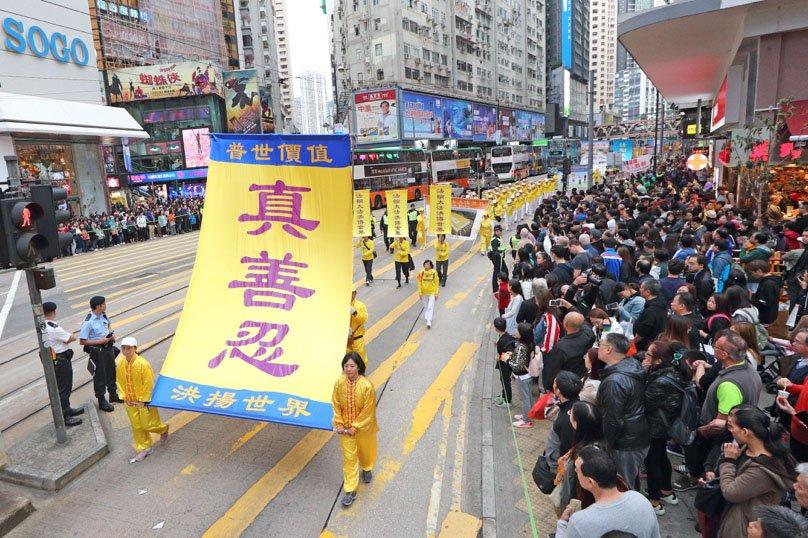Hong Kong adherents of Falun Gong voiced concerns about their personal safety and basic rights upon China’s implementation of a national security law, during a recent closed-door online roundtable held with religious groups that included the U.S. Commission on International Religious Freedom among the attendees.
However, it is freely practiced by millions in over 100 countries and regions around the world, including Hong Kong.
Though the territory returned to Chinese rule in 1997, Hong Kong still guarantees freedoms not enjoyed in the mainland, including freedom of belief.
However, with China’s rubber-stamp legislature recently approving national security legislation for Hong Kong that would penalize activities considered related to subversion, secession, foreign intervention, among others, human rights groups expressed concern that the proposal would allow Beijing to crack down on dissent.
“We are afraid that Falun Gong will be treated like those practitioners in the mainland,” Wu said in a phone interview, and “no longer be able to freely practice our faith in Hong Kong and could be arrested...at any time.” The suppression could also be extended to other religious groups in Hong Kong, she added.
Wu noted that since China’s persecution began, Beijing has “directly or indirectly” interfered with Falun Gong practitioners’ activities in Hong Kong.
Wu told the roundtable that local adherents feared that their rights for peaceful assembly and protest would be further denied after the security law is put in place, because “the activities exposing the CCP [Chinese Communist Party] crimes can also be considered subversion of state power,” she recalled to The Epoch Times.
She expressed worries that local practitioners could face torture or forced organ harvesting, as mainland adherents do.
Wu urged U.S. ambassador-at-large for international religious freedom, Sam Brownback, to issue a statement “to address the threat to religious freedom in Hong Kong,” and called on the broader U.S. government to help secure Hongkongers’ rights to religious belief and assembly.
Beijing has not formally responded to Trump’s announcement, but has said it is intent on implementing the law in Hong Kong.
Wu said that despite the impending threat, adherents in the city will continue to raise awareness about the regime’s persecution, and how its “ideology is a threat to humankind.”
“We will continue to tell more people about its hideous crimes, about what Falun Gong is, and why the Chinese regime chooses to persecute us,” she said. “Only when we persist, will authoritarianism [be exposed and] rejected by all people.”





